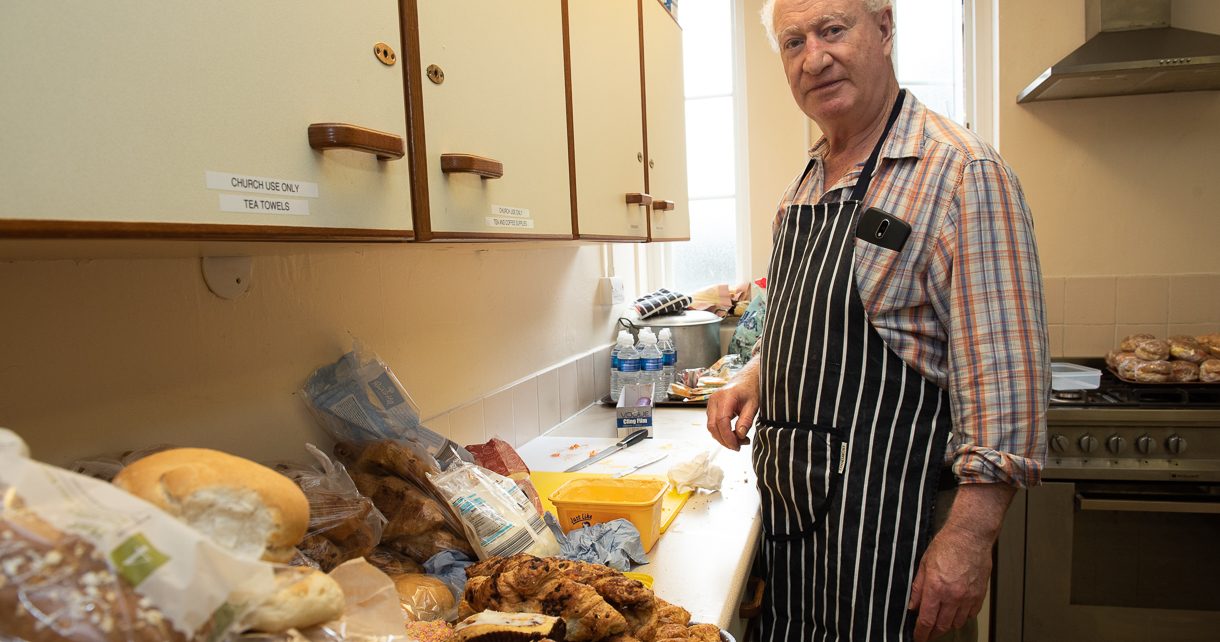Austerity doesn’t work
Earlier this week, the internationally renowned political scientist and author on world debt Susan George, addressed, the General Federation of Trade Unions (GFTU) conference.
Ahead of the conference, UNITElive spoke to Ms George for her views on the banking crisis, austerity and what trade unions can do to step-up the fight against austerity.
When we asked whether European governments have done enough to avoid a repeat of the financial banking crisis of 2008, Susan George responded with an emphatic “Absolutely not.”
Seven years on from the global financial meltdown of 2008 – which forced western government to inject billions of pounds of taxpayers’ money into their banks to prevent them collapsing – and it’s back to business as usual with banks once again calling the shots with government.
George added, “There are studies that show us that the system is so interconnected and so fragile, that if something happens to one of the largest central companies, banks or financial instruments it could trigger the collapse of all.
“Mathematicians call it the knife edge property – if one goes down they will all fall together like a set of dominos – it’s a cascade effect.”
Obvious post crisis reforms to the financial system designed to solve â€too big to fail’ have been systematically dismissed. “We’ve not even done the basic things like separating commercial (retail) banking from investment banking,” George added.
She continued, “We still don’t have a financial transactions tax that could be a huge source of income and get rid of austerity. So the banks have been left to write their own programmes with no serious attempts to regulate them, the banks have won.”
Austerity never works
In 2010, the newly elected coalition government responded to the post-crash recession – not with robust banking reforms – but with austerity. Across the western world a similar rush of brutal fiscal consolidation was playing out.
On austerity George is clear that it can never work, she said, “even the IMF is now saying, firmly but gently that austerity is not a good idea”.
And she’s right, all of the economic research that allegedly supported the austerity mania has now been discredited. Two-third of the UK’s leading economists say austerity has been bad for the UK economy.
As the Nobel-prize winning economist Paul Krugman writes in â€The Austerity Delusion’, “harsh austerity in depressed economies isn’t necessary – and does major damage when it’s imposed.”
Susan George, explained it like this. “It was proven in the 1930s by the new deal economist Irving Fisher. He showed why austerity couldn’t work, and the problem is, as anyone will tell you – demand.
“The reason the economy isn’t working is because people don’t have a quid in their pockets. Unless demand is fixed, there will be soaring inequality and what growth there is goes to the top. It goes to the 1 per cent of 1 per cent mostly and working people get very little.”
She continued, “If you take a trillion pounds out of one groups’ pockets and put it in another – put it in the pockets of those who already have most of what they need -they’re not going to go out and buy 200 pairs of jeans. Therefore we’re going to lessen demand.”
Britain’s austerity U-turn
Even Britain was forced to abandon austerity – it’s not something you will hear Osborne crowing about now, but after two years of over-zealous belt tightening no new austerity measures were imposed.
All talk of â€balancing the books’ and â€deficit reduction’ silenced.
Once the U-turn was made Britain saw a revival in economic growth in 2013. Paul Krugan writes, “Britain did almost no fiscal tightening in 2014, and grew by 2.9 per cent.”
What makes this all the more surprising is that the Tories were able to sweep into power on the back of a lie.
The British electorate were sold a pup, conned into believing that Cameron and Osborne had â€rescued’ the British economy, when in fact their austerity had taken us to the brink of a triple dip recession in 2013 and only recovered when the brake was removed.
National debt doubled under the coalition and far from a fixed economy we have stagnant wages, a productivity slump, slow growth and rising household debt.
With Cameron promising to re-impose harsh austerity in the coming years and Osborne preparing ÂŁ12bn of welfare and in-work benefits cuts, we can expect the crisis of growing poverty in Britain to worsen.
Susan George describes austerity as an illness. She said, “It’s a completely ideological policy. The point of it is to transfer infinite amounts of money upwards. The effect of it is to claw back everything working people have gained since the war, from healthcare to workers’ rights.
“The system used to be GDP every year was divided between capital and Labour, with capital getting 30 per cent and salaried people got 70 per cent – it’s now down to 40/ 60 per cent and in France it’s 42/ 58 per cent.” she said.
Hope on the horizon
Susan George concedes that “we haven’t won the battle of ideas,” but sees hope on the horizon.
George wants to see a collective effort on austerity – a European-wide campaign – with trade unions at the centre, similar to the pan-European campaign on TTIP (Transatlantic Trade and Investment Partnership).
She said, “This is a good model and the one that has worked best. I think we should at least start talking about it.”
Many trade unions have joined the self-organised European Citizens Initiative against TTIP which has attracted 1.9m signatures so far. The aim is to reach 2m signatures before the European Parliament gives its opinion on June 10.
You can sign the petition against TTIP here.
Interested in taking a stand against austerity? Then join the Peoples’ Assembly march against austerity in London on 20 June. Sign up here
 Like
Like Follow
Follow


